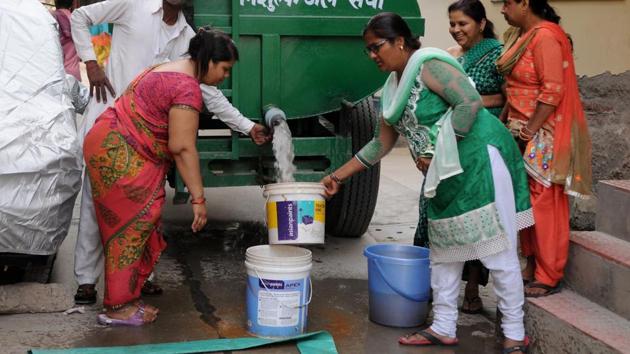World Environment Day: Gurugram condos show how to tackle waste crisis
On World Environment Day, take a cue from Malibu Towne in Sector 47, where crowd-funded composting systems have been setup by five women. Societies such as Wellington Estate in DLF Phase-5 have gone a step further and installed solar panels.
Gurugram is growing at a phenomenal rate and is now facing a sustainability conundrum. With an estimated population of more than two million people, the city generates an average of 900 metric tonnes of waste per day, municipal records show. Most of it ends up in the Bandhwari landfill. To tackle this menace, the city’s residents have taken up waste segregation and composting so they add as little as possible to the city’s landfill.

While these activities have become a way of life in certain condominiums of Gurugram, driving this change has not been easy for some others.
A case in point is Malibu Towne in Sector 47, where five determined women have crowd-funded composting systems and are doggedly educating residents to join the mission of cleaning their city.
Inspiration struck one day when the five, who were already composting waste at home, wondered how much good it would do if everyone in the society joined in. This, however, was no easy feat as they got little support from other residents.
“In October 2017, the five of us started visiting composting plants in other condos to take notes. We then went door-to-door (in our society) to collect money to set up one here,” said Gina Krishnan, one of the volunteers.
Today, they have 14 composting bins, each with a capacity to process 400kg of kitchen waste, and have produced 300 kg of compost since February 2018.
With the donations they’ve hired a private contractor who collects segregated garbage from homes and a worker who works on the compost bins. Some 800 of the society are now a part of this initiative.
In another part of the city, effort by the residents’ welfare association of Uniworld Gardens has ensured that the society throws out next-to-no green waste whatsoever.
“We have been successful in getting 90% households to do a three-way segregation: dry, wet and hazardous,” president of Uniworld Gardens RWA Nirlipt Singh said.
The society, which boasts of a low-cost plant spread over 1,000sqft, consists of 500 households and processes 9,000kg kitchen waste in a month. This generates around 800-900kg of compost every month.
“The plant has been designed with a daily capacity of 300kg. After establishing this compost plant in December 2017, we have managed to stop almost 45,000 kg of green waste from going to the landfill. Moreover, we are harvesting around 800kg of compost every month that is used in the society’s gardens,” Rahul Khera, whose firm oversees the composting plant at Uniworld, said.
The city’s conscientious are also turning to other ways to reduce their carbon footprint, such as banning the use of polybags. Societies including Vipul Belmonte in Sector 53, The Palms in Sector 41 and Silver Oaks in DLF Phase-1 have all banned polythene inside their premises. Bharat Mishra, estate head at The Palms RWA , said, “In February, when the ban was enforced, we conducted awareness trainings for residents and went door-to-door to spread the word.”
Meanwhile, societies such as Wellington Estate in DLF Phase-5 have gone a step further and installed solar panels.
The 200kWp solar panels supplements the 1,800kW grid supply connection from the DHBVN. Internally funded, the panel saves 350-500tonnes of CO2 emissions per year.
“Even before installation of the solar power panels, the society had switched all its lighting to LEDs,” RWA secretary Ajay Jain said, adding that they collectively save around Rs 2,00,000 per month in bills they would have incurred on lighting the common area.
Seeing these residential societies behave responsible, Municipal Corporation of Gurugram commissioner Yashpal Yadav urged more societies to help the civic body clean Gurugram.
“The MCG will support such projects. We are ready to buy the compost from them at a fixed price,” Yadav said.



